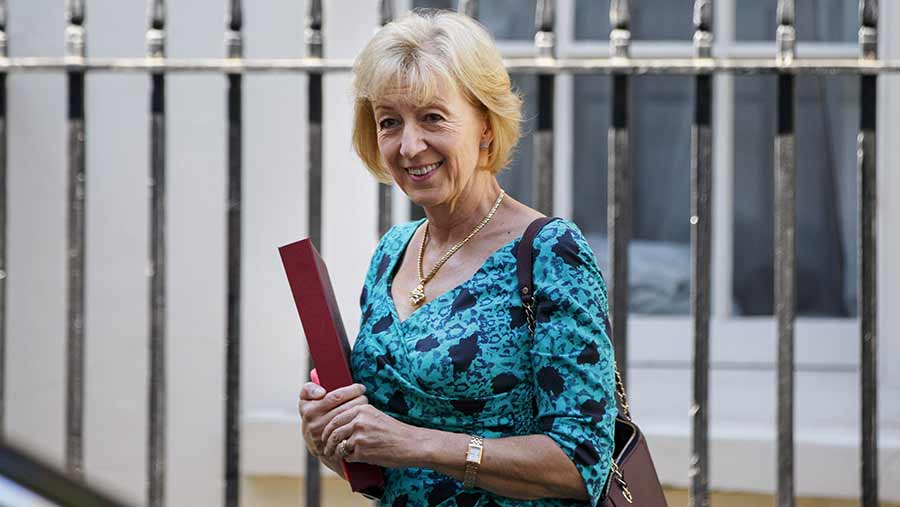Leadsom plans support for farming and the environment
 © Tolga Akmen/LNP/REX/Shutterstock
© Tolga Akmen/LNP/REX/Shutterstock Defra secretary Andrea Leadsom has promised a twin-track approach to future rural support, aiming to balance the needs of the environment with productive farming.
Addressing the cross-party Environmental Audit Committee in Westminster, Mrs Leadsom repeatedly said she was determined that “the current generation is the first to leave the environment in a better condition than they found it”.
But she also acknowledged that, with agriculture occupying 72% of the UK land area, it was necessary to have “a successful, sustainable and productive food and farming sector”.
See also: Chancellor pledges post-Brexit funds for agri-environment schemes
“It is really important that we get the right balance,” she said.
“Food and farming is a very important economic sector and we want to see more food production, more innovation, more promotion of the Great British brand. The extent to which we can do this in a way that improves the environment will be the real sweet spot.”
Mrs Leadsom would not be drawn on any specific policy ideas, but confirmed that the government’s two 25-year strategies – one for the environment and one for food and farming – would be ready for consultation “in the next few months”.
She said the chancellor’s guarantee that full funding for existing policies would continue at least until 2020 was a sign of the government’s commitment to the rural economy.
And she suggested that Brexit would pave the way for simpler, more tailored policies, “delivering what is right for the UK, rather than the lowest common denominator for 28 member states”.
Simplicity
The need for straightforward environmental schemes was emphasised by two other witnesses to appear before the committee.
Natural England director of biodiversity Rob Cooke said the current agri-environment schemes had delivered clear benefits in terms of field margin improvement, reduced pesticide use and higher yields on farmed land.
Environment Agency chief executive James Bevan agreed that paying farmers for eco-system services was a good principle, so long as it was funded properly.
It also needed to be simple, so the public could understand it, regulators could audit it and farmers could participate, he added.
“The farmers I have met are mostly small businesses,” said Mr Bevan. “They don’t have the bandwidth to wade through 200 pages of guidance and fill in endless forms.
“If we want them to farm successfully and deliver the outcomes we want, it is our duty to try to make sure the system is as simple as it can be.”
